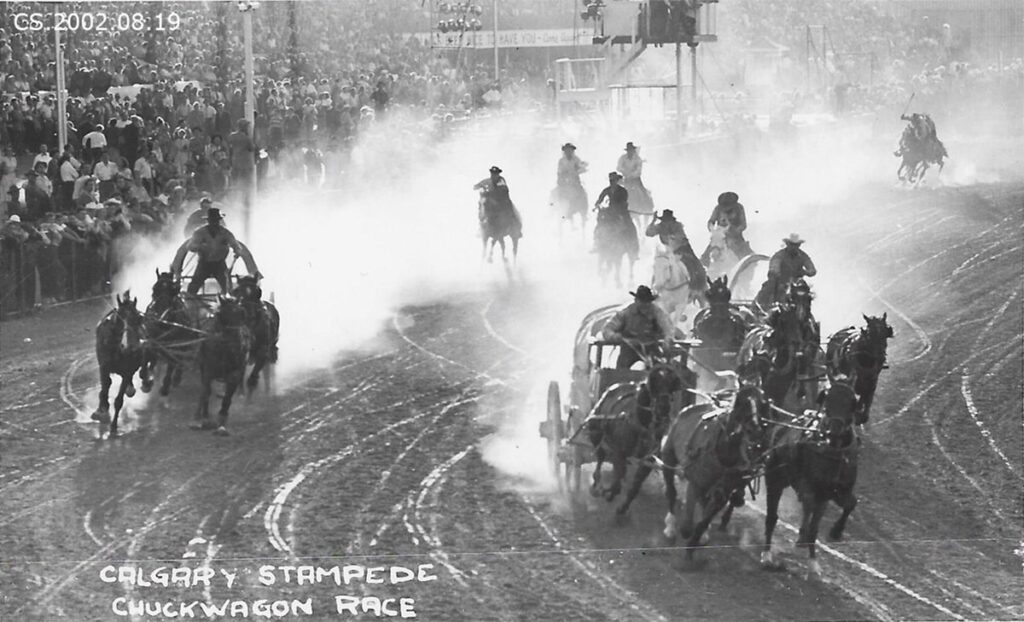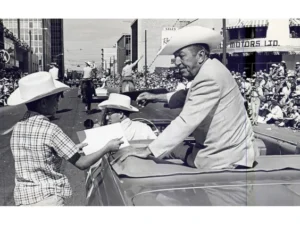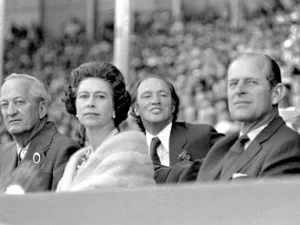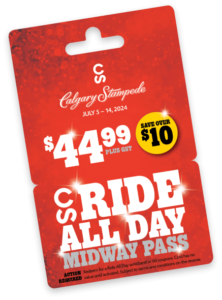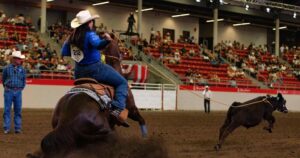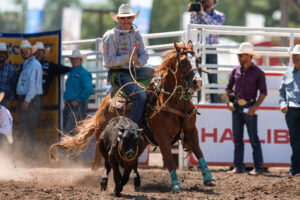Written by: Visit Stampede / Photo Credits: Sam Centre – Calgary Stampede
Every July, Calgary bursts into a lively celebration of western heritage, welcoming over a million visitors to the Calgary Stampede—renowned as “The Greatest Outdoor Show on Earth.” Many people don’t realize that much of what makes the Stampede special can be traced back to a single, pivotal year: 1923. That’s when the Calgary Exhibition and Stampede merged to form the event we know today, and when two legendary traditions—chuckwagon racing and the pancake breakfast—took their first steps into history.
The Birth of the Modern Stampede
In the early 1920s, Calgary was searching for a way to create a truly unique event that would celebrate its western roots and draw people from far and wide. The answer came in 1923, when the Calgary Industrial Exhibition joined forces with the Stampede to create the Calgary Exhibition and Stampede. This new, combined event was a bold experiment, but it quickly proved itself a success.
The first official Calgary Exhibition and Stampede in 1923 attracted over 138,000 people over six days and even managed to turn a profit—an impressive achievement at a time when the country was still recovering from economic challenges. The city’s mayor encouraged everyone to dress in western attire and closed downtown roads for morning street parties, helping to create the festive, community-driven atmosphere that still defines Stampede today.
Chuckwagon Racing: The Wildest Show on Dirt
One of the most thrilling additions to the 1923 Stampede was the introduction of chuckwagon racing. Inspired by the real-life cowboy tradition of packing up camp and racing home after a cattle round-up, chuckwagon racing was designed to test the speed and skill of both horses and drivers. In the early days, teams would load their gear into a regulation food wagon, race around barrels, and finish by unhitching the horses and lighting the camp stove—the first team to produce smoke was declared the winner.
By 1923, the format had evolved slightly, with the winner simply being the first to cross the finish line in front of the grandstand. The event quickly became a crowd favourite, thrilling spectators with its speed, daring maneuvers, and occasional spills. Chuckwagon racing has remained a cornerstone of the Stampede ever since, drawing top competitors and large crowds, and is now considered one of the most exciting and dangerous rodeo events in the world.
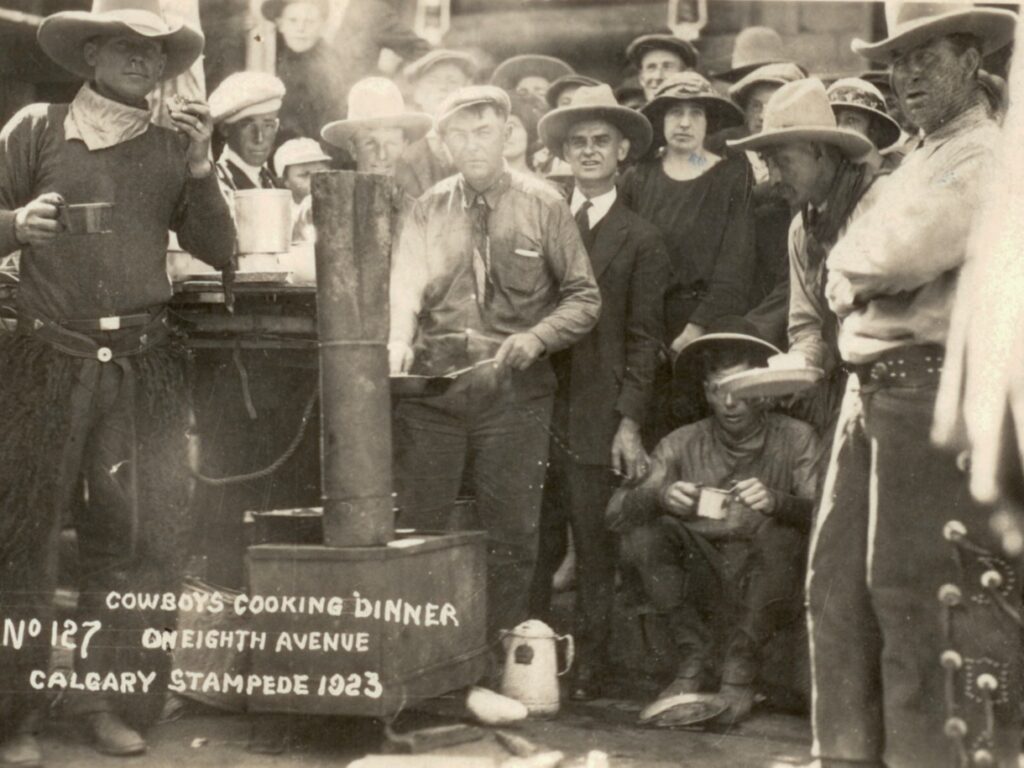
The Humble Origins of the Pancake Breakfast
While chuckwagon racing was thrilling the crowds on the Stampede grounds, another tradition was quietly taking shape on Calgary’s streets: the pancake breakfast. Though the official centennial of the Stampede pancake breakfast was celebrated recently, the tradition’s roots stretch back to the early days of chuckwagon racing.
The story goes that a rancher and early chuckwagon competitor teamed up with a cook to serve free pancakes from the back of their chuckwagon on Stephen Avenue. Their goal was simple: to promote the new chuckwagon races and share a taste of western hospitality with locals and visitors alike. Their makeshift grill and generous servings of buttermilk pancakes and sausages quickly became a hit, and the tradition of free community breakfasts was born.
Today, the Stampede pancake breakfast is a beloved institution, with hundreds of breakfasts held across the city each July. Politicians, celebrities, and volunteers all take turns flipping flapjacks for thousands of hungry Calgarians and visitors, fostering a sense of community and celebration that has become synonymous with the Stampede spirit.
A Lasting Legacy
The 1923 Calgary Stampede didn’t just mark the beginning of a new era for the event—it laid the foundation for the modern Stampede in ways that are still felt today. The introduction of chuckwagon racing brought excitement and spectacle to the rodeo, while the pancake breakfast tradition fostered community spirit and western hospitality.
As you stroll through downtown Calgary during Stampede, take a moment to savor a pancake, cheer on a chuckwagon team, or simply soak in the western atmosphere. You’re not just enjoying a festival—you’re part of a tradition that began over a century ago, thanks to the vision and creativity of the 1923 Stampede’s organizers and participants.

